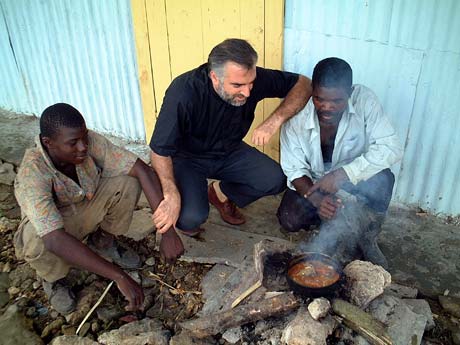Tough call on this one. The real subject of the film is Father Christopher Hartley, a renegade cleric who stood against the oppression of Haitian workers in the Dominican Republic. His story is indeed one of bravery and principle, as he repeatedly put himself in harms way to oppose what amounted to kidnapping and slave labour. But the films ostensible subject is the Haitian workers and on this score its distant and alienating. Following a dramatic structure through Father Hartleys struggle is a weird way to give voice to the voiceless though theres plenty of background on the family of businessmen who rule the operation and the Dominican racism that fuels the fire, everything is viewed from a relatively enfranchised remove. And while access was surely an issue, it doesnt mean that the few snippets of devastated Haitians do anything but set up the saga of the good Father. Still, hes pretty damned amazing, someone who blew off a life of privilege to stand for something larger and repeatedly put his life on the line in service of the poor. And thats where the ambiguity lies: is this the necessary story of standing against oppression no matter what the cost or is it the exploitation of his story to give white audiences a hero to soften and distract from the ugliness of the problem? There are no easy answers but Im pretty sure you could have retooled this to include both perspectives. Paul Newman narrates, if that helps. Extras include a not terribly interesting filmmakers commentary, which only marginally improves our appreciation of the issues, and a couple of short films for social organizations that commit the very same sins as the feature.
(Mongrel Media)The Price of Sugar
Bill Hane

BY Travis Mackenzie HooverPublished Sep 26, 2008